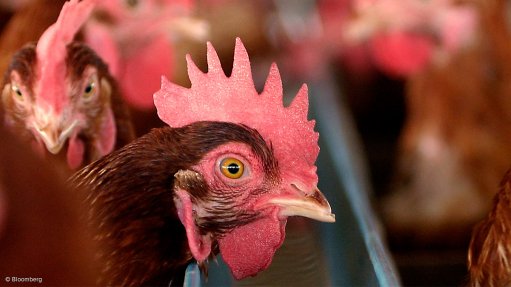
JSE-listed RCL Foods is in the process of developing proactive pricing strategies designed to protect market share as far as possible, while still recovering cost pressure.
On Wednesday the company forecast that key features for the next reporting period would be the pervasive impact of the drought as well as the impact of the weak rand on soft commodity prices. “These two issues are expected to drive food inflation and consequently challenge margins across most categories,” the African food producer said in a statement on its results for the six months ended December 31.
However, aggressive competition and a distressed consumer would make it difficult to fully recover these increases from the market, with negative growth in real consumer spending expected over the next 12 to 18 months.
As a result, synergies, overhead savings and production efficiencies would continue to receive substantial focus in the next period. Innovation, including formats and pack sizes suitable for "hard times", and export opportunities, were also being evaluated.
The company’s Chicken business was contemplating a further reduction in production volumes to both mitigate exposure to commodity-based lines and to extend current feed procured positions.
The Chicken business unit delivered first half earnings before interest, taxes, depreciation and amortisation (Ebitda) of R210.8-million, down 15.3% compared with the prior corresponding period.
“The market remains massively oversupplied as a result of local production as well as dumping. The new model in the Chicken business strives to reduce exposure to commodity based lines by growing QSR volumes while retaining/reducing bird numbers. During this period, QSR growth has been muted for some customers, which required that overall bird numbers be reduced further to limit additional consequential volume,” RCL elaborated.
A recovery in sugar production during the next season was dependent on a return to normal rainfall levels. The expectation of a global production deficit and some recovery in world market prices was encouraging. However, if the drought persisted, sugar availability would remain under pressure, as would the financial results for this business unit. Sugar produced Ebitda of R163.6-million, a decline of 29.9% on the previous comparable six months.
RCL Foods expected cash flows in the business to remain positive; however, the company’s current capital expenditure investment programme would be reviewed and tempered as appropriate to the changing market environment.
“It remains RCL Foods' intention to explore opportunities in strategic growth markets in the food sector in South Africa and sub-Saharan Africa in line with its long-term aspirations.”
During the period under review, RCL Foods reported a 7% increase in revenue to R12.9-billion. Ebitda, however, was down 5% to R1.1-billion, as was cash generated by operations, declining 39.6% to R372.7-million.
Although, headline earnings from continuing operations climbed 25% to R751.8-million and headline earnings a share from continuing operations increased by 24.5% to 87.2c. The interim dividend a share was 15c.
The single-biggest operational feature of the period highlighted by RCL Foods was the severe drought, which ravaged large parts of South Africa and surrounding areas, and had a pervasive impact on the business.
“The increase in commodity input prices has been exacerbated by the substantial decline in the value of the rand, which more than offset any benefit that may have been gained from the lower international oil price. In addition, consumers remain under pressure with lower disposable income, increasing debt levels and rising interest rates, as well as high unemployment,” RCL Foods noted.
Further, the company added that the recent integration of the four businesses into one company had been critically important from a strategic perspective.
“It has created a simplified structure for a diversified business with a well-balanced portfolio across the food spectrum. The group has remained steadfast in its focus on implementing the strategic imperatives notwithstanding the volatile operating conditions.”
RCL Foods had committed dedicated senior resources to the Transformation Management Office to drive integration projects associated with the new business structure.
There were currently 15 key business transformation programmes in place, covering compliance, business legal structure and business enablement, with significant benefits already having been realised, RCL Foods said.